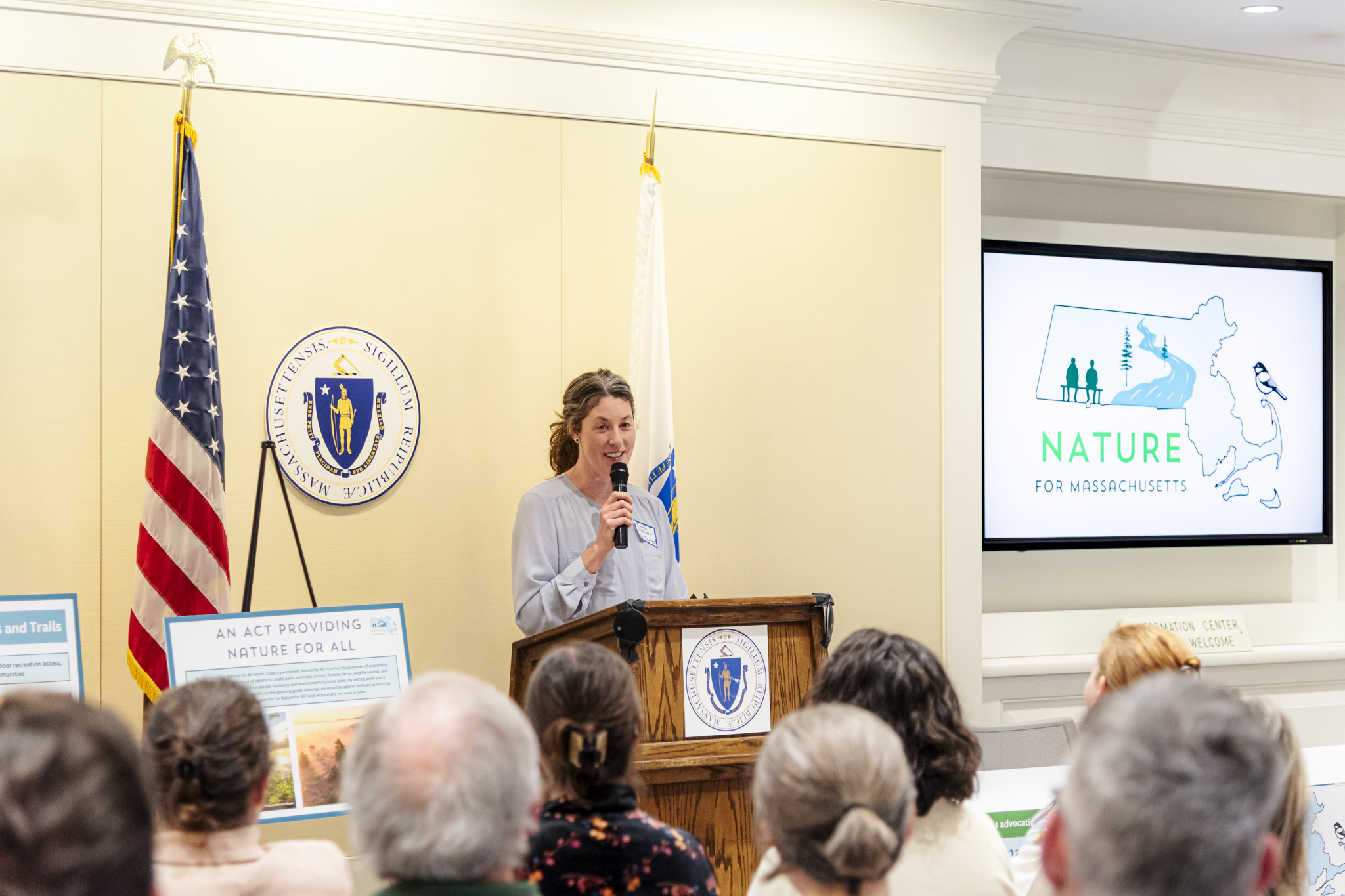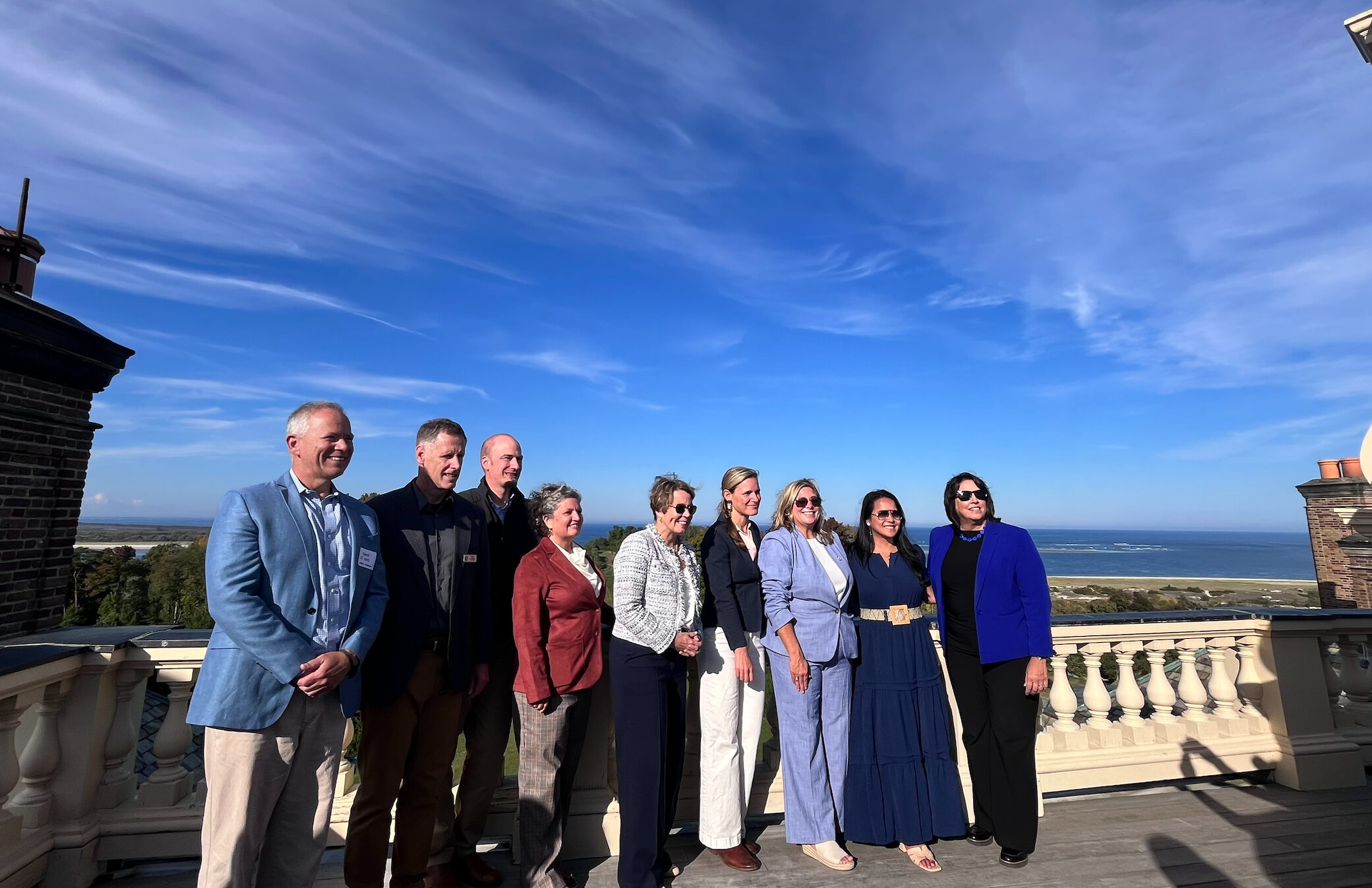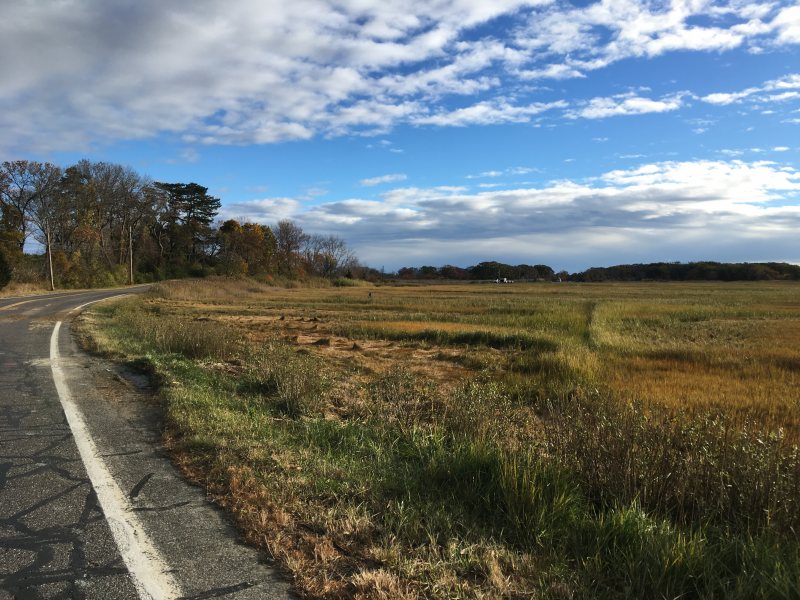On Wednesday, October 11, Trustees Senior Director of Government Relations Linda Orel joined a panel of partner advocates at the Massachusetts State House to testify on behalf of The Outdoor Recreation Act (H.757, S.488). Otherwise known as An Act to create the Massachusetts outdoor recreation fund, the bill is sponsored by Senator Paul Feeney (D-Foxborough) and Representative Natalie Blais (D-Sunderland).
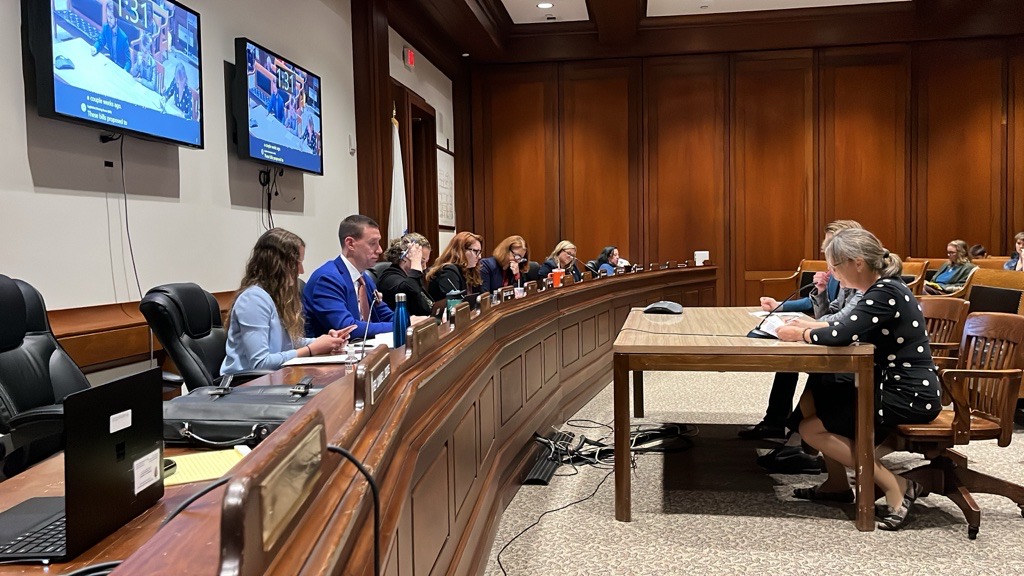
Linda was joined on the panel before the Joint Committee on Environment and Natural Resources by Zeus Smith of the Charles River Watershed Association, Rae Ettenger of the Appalachian Mountain Club, and Katharine Lange of the Mass Rivers Alliance. Each spoke to a different component of the act, including economic benefits, health benefits, and climate resilience.
The Outdoor Recreation Act would create a statewide dedicated fund to ensure the success of the new Massachusetts Office of Outdoor Recreation and provide grants for outdoor recreational purposes, with priority given to projects that benefit underserved and Environmental Justice populations across the Commonwealth.
“Despite [our] efforts and the efforts of our colleagues, many people in Massachusetts do not have access to nature and outdoor recreation opportunities,” Linda testified. “Stark disparities continue to exist in Environmental Justice communities and other neighborhoods, many of which receive little investment in outdoor recreation from state programs. In some neighborhoods, still, kids do not have a place to walk to a park, trail or urban space.”
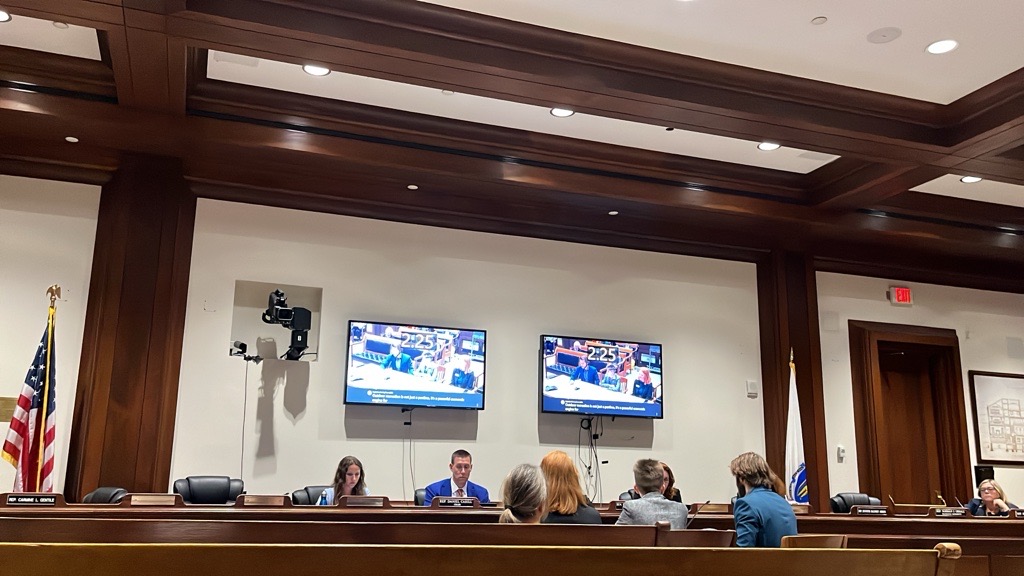
Economic Benefits
According to a recent study from the U.S. Bureau of Economics, the economy of the Commonwealth of Massachusetts benefits greatly from outdoor recreation, which adds $9.5 billion to the state’s GDP and supports 93,000 jobs.
Speaking to the committee about the economic benefits of this bill, Smith of the Charles River Watershed Association emphasized, “Massachusetts ranks 50th nationally – dead last – in per capita spending on parks and recreation. Our outdoor recreation economy is also not growing at the same rate as other states,” he continued. “S.488 and H.757 are part of the solution.”
“Our coalition supports this legislation as it would create a new dedicated fund for outdoor recreation projects and programs and would be implemented by the new Massachusetts Office of Outdoor Recreation” Linda said during her testimony. “These bills propose to dedicate the existing 6.25% state sales tax on the sale of sporting goods. It could generate over $50 million dollars every year, to create and improve parks, community gardens, nature-based playgrounds, and accessible trails.”
The Outdoor Recreation Act would establish an Outdoor Recreation Trust Fund to create new grant opportunities for cities, towns, state agencies, community development corporations, regional planning agencies, and non-profit organizations, utilizing the funding from this state sales tax on sporting goods.
Health Benefits
“AMC supports the grant program the Outdoor Recreation Act would fund because of the health benefits that would be granted to all residents of Massachusetts,” Ettinger testified on behalf of the Appalachian Mountain Club. “This is based on the principle that the outdoors can only increase health outcomes if all people have opportunities to engage in outdoor recreation.”
“These bills give priority consideration to projects that support underserved communities, an important and equitable step forward to improve and grow the state’s outdoor recreation economy while supporting healthier residents and protecting critical natural resources,” Linda told the committee.
Climate Resilience
Aside from economic and health benefits for our communities in the Commonwealth, open space brings with it another important benefit of climate resilience.
“Open space is climate resilience. We know that our weather is getting more extreme with climate change,” said Lange of the Mass Rivers Alliance in her testimony. “The City of Boston had its second rainiest summer on record and its similar for most of the state. Open space gives that water somewhere to go. The woods we enjoy walking through, the rivers we enjoy floating down, double as flood storage in these events.”
The groups that testified before the committee on Wednesday were joined in support via a Press Release by at least seventeen other organizations in urging the Massachusetts State House and Senate to consider the many benefits of the Outdoor Recreation Act.
“The Trustees strongly supports the Outdoor Recreation Act,” said Katie Theoharides, president and CEO of The Trustees in the press release about the hearing. “With more than 120 special places, including over 29,000 acres all around the state, we are dedicated to getting more people outdoors, providing equitable access, and building climate resilience across the Commonwealth. ”The panel hopes to receive a favorable recommendation out of committee for both bills (H.757 and S.488). The group received positive feedback from those hearing their testimony.
To learn more about The Trustees advocacy and policy initiatives, click here.

